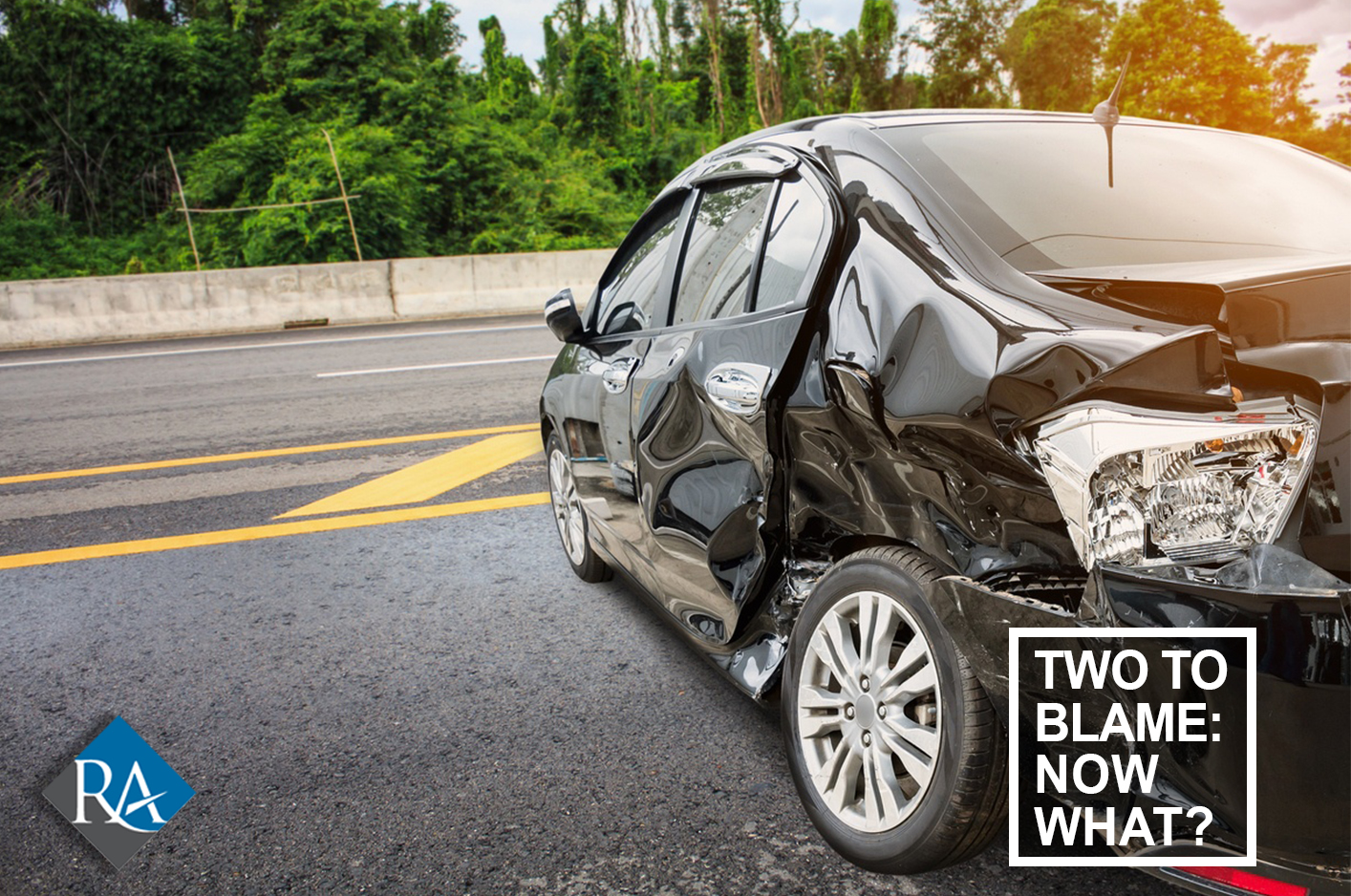
09 May What if I’m partially to blame for an accident?
You suffered injuries and damage to your vehicle in a car accident: now what? Most people anticipate the need to collect damages from the insurance company. Unfortunately, you caused part of the accident, whether you were distracted, failed to pay attention to important details on the road, or ignored some of the basic rules of the road. Now what? Can you still collect damages if you were partially to blame for your car accident?
Fault Percentages: How They Determine What You Can Collect
Often, you will be assigned a percentage of the fault for your car accident. A minor error in judgment might cause you to accept 10% of the blame. If both you and the other driver were distracted, causing you to crash into one another without a clear indicator of which of you actually caused the accident, each of you may receive 50% of the blame. The percentage of fault you accept or are assigned for the accident can significantly impact the damages you can collect.
In general, one party will be assigned primary fault for the accident. If you are the driver who primarily caused the accident, you can recover damages only if you carry full coverage insurance for your vehicle, in which case, your insurance policy will allow you to repair it. If you caused 40% or less of the accident, on the other hand, you can recover damages related to the accident.
First, the insurance company will calculate the damages they owe you for the accident. This includes medical expenses, lost time at work, and damages to your vehicle and personal property as well as your pain and suffering, generally assigned as a percentage of the cost of the accident. Then, they will reduce the funds you actually collect by the same percentage that you are deemed responsible for the accident. If you are held 20% responsible, for example, you will receive 80% of the claim amount.
Increasing the Percentage You Recover
If you are involved in a car accident, ensuring that you recover the right funds starts at the scene of the accident. Keep these things in mind:
Do not accept fault at the scene of the accident. Many people automatically apologize or try to insist that someone else who wronged them was not entirely at fault–and this carries over to accident scenes and other issues. Instead, avoid accepting fault or sharing fault if at all possible, especially when speaking to the other driver or to the police officer at the scene of the accident. Your statements now can help protect you when the time comes to collect the funds you deserve from the accident. Be honest, but avoid accepting fault.
Talk with a lawyer before talking to the insurance company. Many lawyers offer free consultations after a car accident. During this consultation, the lawyer can help shape your understanding of what you should say to the insurance company, which can make it easier to avoid saying anything incriminating. When you do speak with the insurance company, avoid incriminating yourself, including admitting any fault for the accident.
Visit a doctor if needed. If you suffered injuries in your accident, make sure you see a doctor as soon as possible. A doctor can assess your injuries, provide evidence for the insurance company, and give you advice about how to care for yourself following the accident.
Did you suffer damages, either to your car or to yourself, during a car accident? You may need a lawyer to help understand what funds you can collect as a result of the accident, especially if you share fault for the accident. Contact us today to learn more about how we can help.

Sorry, the comment form is closed at this time.